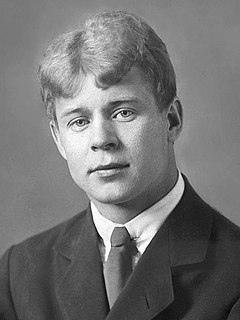A Quote by Samuel Taylor Coleridge
Call not that man wretched, who whatever else he suffers as to pain inflicted, or pleasure denied, has a child for whom he hopes and on whom he doats.
Related Quotes
Our strategy is how we cope--how we measure and weigh what is to be said and when, what is to be done and how, and to whom and towhom and to whom, daily deciding/risking who it is we can call an ally, call a friend (whatever that person's skin, sex or sexuality). We are women without a line. We are women who contradict each other.
It cannot be denied that for a society which has to create scarcity to save its members from starvation, to whom abundance spells disaster, and to whom unlimited energy means unlimited power for war and destruction, there is an ominous cloud in the distance though at present it be no bigger than a man's hand.
For many observers, a child who has known nothing but war, a child for whom the Kalashnikov is the only way to make a living and for whom the bush is the most welcoming community, is a child lost forever for peace and development. I contest this view. For the sake of these children, it is essential to prove that another life is possible.
No one suffers so much as he [the genius] with the people, and, therefore, for the people, with whom he lives. For, in a certain sense, it is certainly only "by suffering" that a man knows. If compassion is not itself clear, abstractly conceivable or visibly symbolic knowledge, it is, at any rate, the strongest impulse for the acquisition of knowledge. It is only by suffering that the genius understands men. And the genius suffers most because he suffers with and in each and all; but he suffers most through his understanding. . . .







































